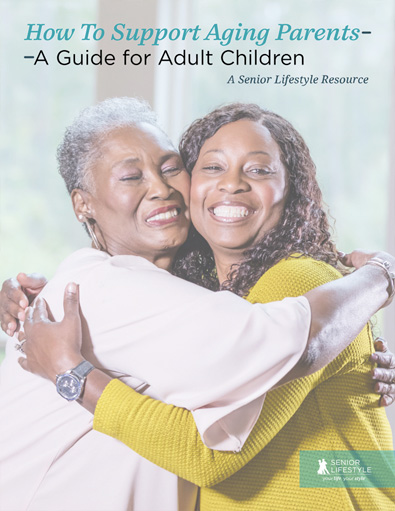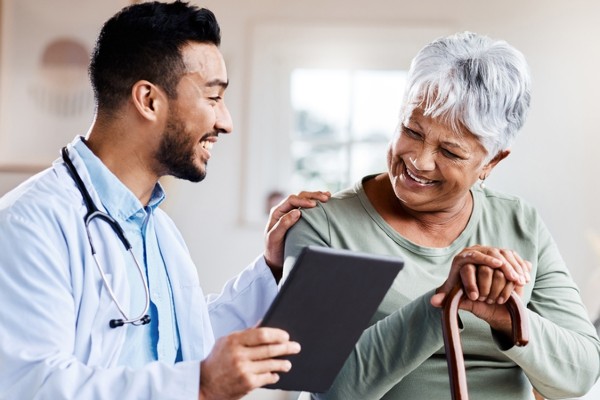When family members take care of seniors, they need to know about their loved one’s health conditions and concerns. Whether the seniors are living alone, with the family or in senior communities, getting the right care for them is a legitimate issue. But their privacy should be preserved also.
>> Read “Checklist for Taking Care of Elderly Parents”
Find out how seniors are guaranteed privacy and family members can be involved in important care decisions at the same time.
What Is HIPAA?
HIPAA, which stands for the Health Insurance Portability and Accountability Act of 1996, is a way for people to keep their health information private. It determines who can look at and receive someone’s personal health information.
HIPAA law protects:
- Billing information
- Conversations and notes written by a doctor and shared with the individual
- Diagnosis and treatment plans
- Electronic medical records
- Medical history
- Personal information in medical records
The act also allows individuals to authorize in writing the disclosure of information to selected people, such as family members.
It’s a good idea for seniors to sign HIPAA authorizations so their family and caregivers can be notified about their medical needs. With knowledge of comprehensive medical and treatment histories, better medical care decisions can be made by family and caregivers.
With authorization, caregivers may:
- Communicate directly with doctors to discuss and coordinate treatment of a senior
- Discuss and pay medical bills on behalf of the senior
How HIPAA Can Be a Barrier to Family Caregivers?
HIPAA is sometimes misinterpreted and used to keep information from family caregivers. But that’s not the intent of the act, according to the U.S. Department of Health and Human Services. By signing an authorization, seniors can help families keep better communication with medical professionals so caregiving can be successful.
Even without specific authorization, HIPAA allows disclosure of relevant information to individuals who are involved in a person’s health care or payment for it.
According to the HHS, health care providers may disclose information if:
- An individual under care gives the provider approval to share the information to specific people
- The individual is present and does not object to sharing the information with the other person
- The individual is not present but the provider determines that it is in the best interest of the individual under care to have health information shared with the other person.
How Can HIPAA Help Caregivers Stay Informed?
Besides protecting patient information, HIPAA can help loved ones stay in touch to help make decisions about what is best for a senior under care, according to HHS.
The agency says HIPAA laws for caregivers help caregivers stay connected by allowing them to receive information necessary and relevant to the patient’s health care or payment for care. It also lets doctors, nurses and social workers share protected health information that is related to the care and assistance being provided to seniors.
There are several ways caregivers can stay informed and involved in their loved ones’ care while respecting their privacy and complying with HIPAA regulations.
Access Medical Records
Caregivers can request copies of their loved ones’ medical records from health care providers or covered entities. But caregivers must first verify their identity and provide proof of their legal authority to access the records.
Attend Medical Appointments
Caregivers can attend medical appointments with their loved ones to stay informed about their health status and treatment plan. However, they should have written authorization from their loved ones or their legal representatives beforehand and ensure that they do not disclose any protected information.
Communicate with Health Care Providers
Caregivers can communicate with health care providers and other professionals to stay informed about their loved ones’ status and treatment plan. However, caregivers must ensure that they do not disclose any personal health information to unauthorized people, as this would be a HIPAA violation.
Obtain Written Authorization
Caregivers can get written authorization from their loved ones or their legal representatives to access their health information. This written authorization must meet HIPAA regulations and should specify the scope and purpose of the information requested.
Participate in Caregiver Support Groups
Caregiver support groups can provide a safe space for caregivers to share their experiences, challenges, and concerns about their loved ones’ care. Caregivers can learn about HIPAA regulations and best practices for staying informed about their loved ones’ health information while complying with HIPAA regulations.
>> Read “7 Signs of Caregiver Burnout”
It’s important to remember that HIPAA doesn’t prevent a provider from listening to caregivers. Families should feel free to communicate with medical professionals with questions and concerns.
However, medical professionals are not to share information from a family caregiver if:
- The caregiver asks to keep the communication confidential, and
- The doctor promises not to tell the patient they spoke to the caregiver.
This is intended to keep communication transparent and so seniors can know about discussions about their health.

Download How to Support Aging Parents: A Guide for Adult Children – Senior Lifestyle
Download the GuideHow HIPAA and Senior Lifestyle Protect Your Loved One
Overall, HIPAA regulations aim to protect the privacy and security of personal health information and ensure that patients have control over their health information. Families of seniors receiving care should be aware of their rights and responsibilities under HIPAA and work closely with health care providers and covered entities to ensure that their loved ones’ information is kept confidential and secure.
>> Read “How Senior Lifestyle Communities Provide Safety”
Senior Lifestyle makes the care and protection of your senior family member its priority. With the right level of care for your loved one’s needs, you’ll find activities, classes, meals and more to make your family member safe and secure. They’ll also have their daily needs looked after so they can live a carefree life.
Find out more about Senior Lifestyle or schedule a visit today.

